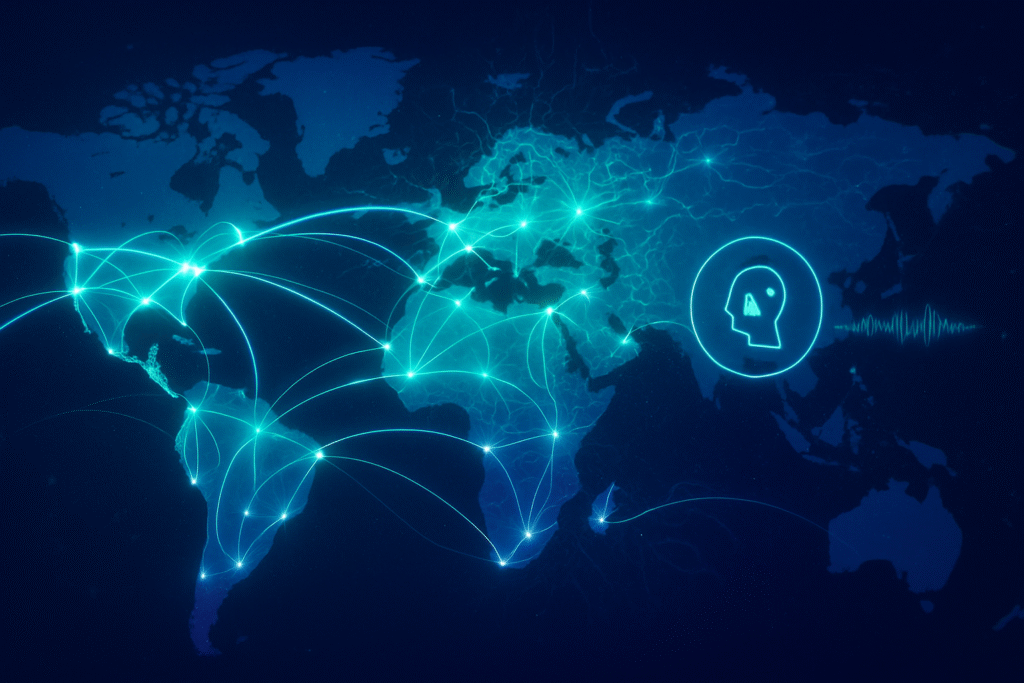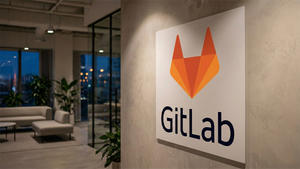
The travel industry is currently undergoing a profound transformation, propelled by a surge of artificial intelligence innovations that promise to redefine how we plan, book, and experience our journeys. At the forefront of this revolution are strategic moves by companies like Omio, with the inauguration of its new technology hub in Singapore, and HotelPlanner, which has deployed advanced AI voice agents to streamline booking processes. These developments signal a concerted industry effort to leverage AI for unprecedented efficiency, personalization, and global accessibility, fundamentally shifting the landscape of travel technology.
Unpacking the Technical Blueprint of AI-Driven Travel
Omio, a leading multimodal travel booking platform, cemented its commitment to an "AI-first platform" with the grand opening of its Singapore technology hub in July 2025. This strategic establishment serves as a critical springboard for Omio's expansion into the vibrant Southeast Asian market, encompassing countries like Singapore, Malaysia, Thailand, Vietnam, Indonesia, and Cambodia. Under the leadership of Maneesh Mishra, Head of AI, the hub is dedicated to harnessing artificial intelligence to integrate additional transportation modes—from flights and buses to newly introduced ferries—and optimize existing services across thousands of carriers. The initiative is further bolstered by a strategic partnership with EDBI, the investment arm of SG Growth Capital, providing significant financial and strategic support for Omio's regional endeavors. This focus on localized AI innovation aims to create seamless global mobility experiences for billions of people, building on Omio's long-standing history of using AI to enhance the entire booking journey.
On a parallel track, HotelPlanner, a global travel technology company, introduced its groundbreaking "Hotel Assistant" in November 2024. This innovative team of end-to-end AI-powered booking assistants represents a significant leap beyond conventional chatbots. The AI voice agents are designed to manage a comprehensive spectrum of customer interactions for reservations across over one million properties worldwide. Key technical capabilities include multilingual support in 15 languages, with plans for further expansion, and the ability to provide comprehensive booking assistance, including checking availability, rates, describing room features, clarifying terms, and processing credit card bookings. These agents are trained on an extensive dataset of over eight million recorded calls with human agents, enabling them to offer personalized, conversational assistance and tailored travel recommendations. They deliver "friendly and emotionally intelligent" two-way conversations, with some customers reportedly unaware they are interacting with AI, and provide 24/7 support via both voice and text.
The distinction from previous approaches is stark. While earlier iterations of AI in travel often involved rule-based chatbots with limited conversational depth, HotelPlanner's AI voice agents leverage advanced natural language processing (NLP) and machine learning to offer truly intelligent, personalized, and humanized interactions. Omio's "AI-first platform" approach signifies a move beyond simply using AI for optimization to embedding AI at the core of its architectural design, aiming for predictive analytics and proactive service delivery across complex multimodal travel networks. Initial reactions from the industry highlight excitement over the potential for unprecedented efficiency and customer satisfaction, with experts noting these developments as critical steps towards fully autonomous and highly personalized travel planning.
Competitive Implications and Market Dynamics
These advancements by Omio and HotelPlanner are poised to significantly impact the competitive landscape for AI companies, tech giants, and startups within the travel sector. Omio's strategic investment in its Singapore hub positions it to capture a substantial share of the rapidly growing Southeast Asian travel market, which is increasingly embracing digital solutions. By focusing on an "AI-first platform," Omio aims to establish a strategic advantage through superior route optimization, personalized recommendations, and a more seamless booking experience across diverse transportation modes, potentially disrupting traditional travel agencies and less technologically advanced booking platforms. The partnership with EDBI further solidifies its market positioning, providing crucial local insights and capital for accelerated growth.
HotelPlanner's deployment of sophisticated AI voice agents presents a direct challenge to competitors relying on traditional call centers or less advanced chatbot solutions. Companies that fail to adopt similar AI-driven customer service models risk falling behind in efficiency, scalability, and customer satisfaction. The ability of HotelPlanner's AI to handle approximately 10,000 customer calls daily—contributing to a total of over 45,000 calls per day—demonstrates a massive scaling capability that frees human agents to focus on more complex, high-value interactions. This operational efficiency translates into significant cost savings and improved service quality, setting a new benchmark for customer support in the hospitality industry.
The competitive implications extend to major AI labs and tech companies as well. As AI becomes more integral to vertical industries like travel, the demand for specialized AI talent, robust machine learning platforms, and sophisticated NLP technologies will intensify. Companies like Google (GOOGL), Amazon (AMZN), and Microsoft (MSFT), which provide foundational AI infrastructure and services, stand to benefit from the increased adoption of AI by travel tech firms. Startups specializing in conversational AI, predictive analytics, and multimodal transportation optimization will find fertile ground for innovation and partnership, while those unable to differentiate their AI offerings may struggle to compete against established players with deep pockets and extensive data sets.
Wider Significance in the AI Landscape
These developments by Omio and HotelPlanner fit squarely within the broader AI landscape, reflecting a significant trend towards practical, application-specific AI solutions that deliver tangible business value and enhanced user experiences. They underscore the maturity of conversational AI and machine learning algorithms, moving beyond experimental phases to robust, real-world deployments. The focus on personalized recommendations, multilingual support, and seamless multimodal integration aligns with the overarching trend of AI enabling hyper-personalization across various industries, from e-commerce to healthcare.
The impacts are far-reaching. For consumers, these AI innovations promise more convenient, efficient, and tailored travel planning. The 24/7 availability and instant responses provided by AI voice agents eliminate waiting times and provide immediate access to information, while Omio's AI-first platform aims to simplify complex multimodal journeys. For businesses, the benefits include increased operational efficiency, reduced labor costs for routine tasks, and the ability to scale customer service and booking capabilities without proportional increases in human staff. This allows human agents to focus on complex problem-solving and high-touch customer interactions, improving job satisfaction and overall service quality.
However, potential concerns also arise. Data privacy and security become paramount as AI systems process vast amounts of personal travel information and payment details. The ethical implications of AI-driven personalization, such as potential algorithmic bias in recommendations or the subtle manipulation of consumer choices, will require careful consideration and regulation. Furthermore, the increasing reliance on AI may raise questions about job displacement in traditional customer service roles, necessitating strategies for workforce retraining and adaptation. Compared to previous AI milestones, such as the initial breakthroughs in image recognition or game-playing AI, these developments represent a shift towards AI's integration into complex, real-world service industries, demonstrating its capability to handle nuanced human interactions and intricate logistical challenges.
Exploring Future Developments
Looking ahead, the trajectory of AI in travel promises even more sophisticated and integrated experiences. In the near term, we can expect Omio's Singapore hub to rapidly expand its AI capabilities, leading to deeper integration of local transportation networks across Southeast Asia, potentially incorporating niche travel options like regional ferries and local public transport systems. The focus will likely be on predictive analytics to anticipate travel disruptions and proactively offer alternative routes, as well as hyper-personalized journey planning that considers individual preferences, loyalty programs, and even real-time biometric data for seamless airport experiences.
For HotelPlanner, the evolution of its AI voice agents will likely involve further advancements in emotional intelligence, allowing the AI to better understand and respond to subtle cues in human speech, leading to even more empathetic and natural interactions. We can anticipate the integration of more advanced generative AI models, enabling the agents to handle highly complex, multi-turn conversations and even negotiate prices or offer dynamic package deals in real-time. The novelty features, such as celebrity voice options, may evolve into fully customizable AI personalities, further enhancing the personalized booking experience.
Potential applications on the horizon include AI-powered virtual travel assistants that can manage an entire trip from inception to completion, handling bookings, itinerary adjustments, and real-time support. We might see AI-driven dynamic pricing models that optimize fares and accommodation rates based on demand, weather patterns, and even social media sentiment. Challenges that need to be addressed include ensuring the explainability and transparency of AI decisions, safeguarding against data breaches, and developing robust frameworks for ethical AI deployment. Experts predict a future where AI-powered travel becomes so intuitive and personalized that the booking process itself fades into the background, allowing travelers to focus entirely on the experience.
A Comprehensive Wrap-Up of AI's Travel Odyssey
The dual narratives of Omio's strategic Singapore hub and HotelPlanner's advanced AI voice agents encapsulate a pivotal moment in the evolution of travel technology. The key takeaways are clear: AI is no longer a peripheral tool but a central engine driving innovation, personalization, and efficiency across the travel ecosystem. Omio's "AI-first platform" approach in a critical growth market like Southeast Asia underscores the strategic importance of embedding AI into core business models, while HotelPlanner's successful deployment of sophisticated AI voice agents demonstrates the immediate and profound impact of AI on customer service and operational scalability.
These developments mark a significant milestone in AI history, showcasing the technology's readiness to tackle complex, real-world challenges in a service-oriented industry. They highlight the shift from AI as a computational engine to AI as an intelligent assistant capable of nuanced human interaction and dynamic problem-solving. The long-term impact will likely see a complete overhaul of the travel industry, making travel more accessible, efficient, and tailored to individual needs than ever before. However, this transformation also necessitates a vigilant approach to ethical considerations, data privacy, and the societal implications of widespread AI adoption.
In the coming weeks and months, watch for further announcements regarding Omio's expansion in Southeast Asia, including new partnerships and technological integrations. Keep an eye on HotelPlanner's AI voice agents for updates on new language support, enhanced conversational capabilities, and perhaps even broader integration across different travel services. The continuous evolution of AI in travel promises a future where every journey is not just planned, but intelligently orchestrated.
This content is intended for informational purposes only and represents analysis of current AI developments.
TokenRing AI delivers enterprise-grade solutions for multi-agent AI workflow orchestration, AI-powered development tools, and seamless remote collaboration platforms.
For more information, visit https://www.tokenring.ai/.





